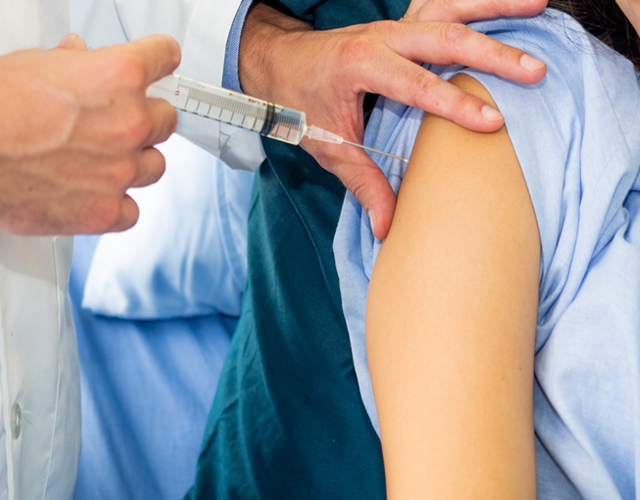What is meningitis?
Meningitis is an inflammation (swelling) of the meninges in the human brain. Meninges are the three membranes that cover the brain and spinal cord. Meningitis can occur when fluid surrounding the meninges becomes infected with virus or bacteria.
The most common causes of meningitis are viral and bacterial infections. Other causes may include:
- cancer
- chemical irritation
- fungi
- drug allergies
Both, viral and bacterial meningitis are contagious. Meningitis can be transmitted to other people by coughing, sneezing, or close (physical) contact.
Meningitis can be fatal if not treated quickly. It can cause life-threatening blood poisoning (septicaemia) and lead to a permanent damage to the brain or nerves. Between 5 to 40 percent of children and 20 to 50 percent of adults with this condition die.
Some available Meningitis vaccination services can offer some protection against meningitis.


The most common types of bacteria thatcause bacterial meningitis are:
- Streptococcus pneumoniae, typically found in the respiratory tract, sinuses, and nasal cavity and is known to cause “pneumococcal meningitis”
- Neisseria meningitidis, is found in the saliva and other respiratory fluids and is known to cause “meningococcal meningitis”
- Haemophilusinfluenzae, causes both meningitis and infection of the blood, along with inflammation of the windpipe, cellulitis, and infectious arthritis
- Listeria monocytogenes, which is afoodborne bacteria and can enter the body through such sources
Why is a Meningitis vaccination service needed?
- Vaccination against meningitis is recommended if you are travelling to high risk countries and your activities can subject you to a greater risk – for example, long-term stay traveller with close contact with the local population.
- High-risk areas for meningitis include parts of Africa and Saudi Arabia. It is mandatory for all the travellers to Saudi Arabia for the Hajj or Umrah pilgrimages to show proof of vaccination.
- If travelling to a high-risk area, you should be vaccinated against meningococcal meningitis with an ACWY vaccine, also known as the quadrivalent meningococcal meningitis vaccine. This is a single injection which should be administered two to three weeks before the journey.
- The ACWY vaccine is necessary before travelling to high-risk areas, even if you have had the meningitis C vaccine as a child.
How can you protect yourself?
Respiratory infections are often difficult to avoid in crowded places but following basic personal hygiene etiquette when coughing and sneezing can help. Avoiding overcrowded areas such as busy markets and local transport may also reduce risk of exposure but may not always be practical.
If you are planning to travel to high-risk areas and are a resident of Richmond, consider a Meningitis travel vaccination to ensure a safe journey.

We pride ourselves on offering our customers a quick, efficient service.
